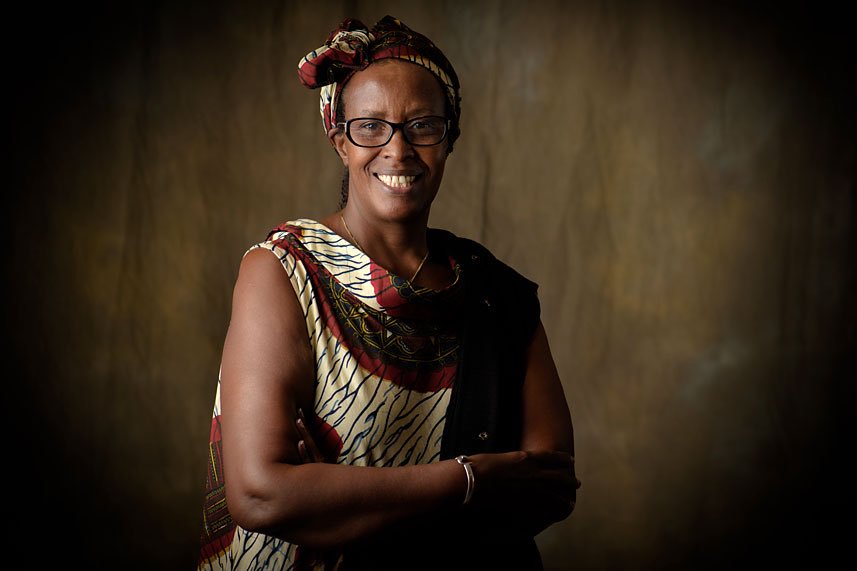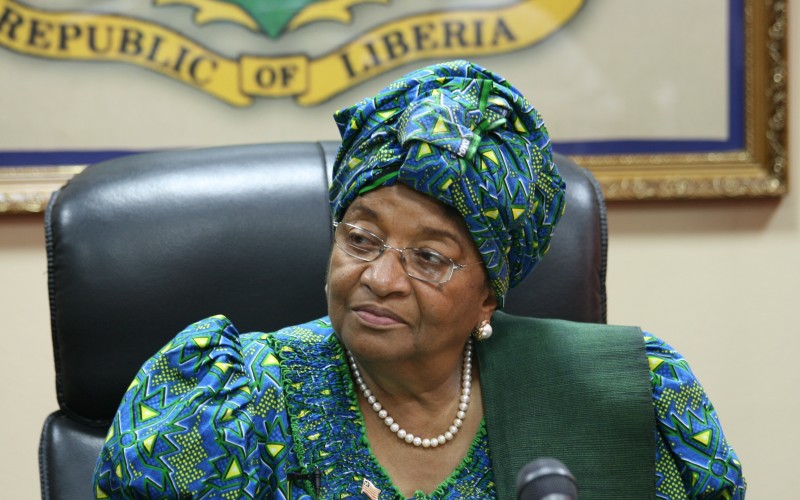- Havard Business Review published a Research that shows Women Score Higher Than Men in Most Leadership Skills.
Gabonese President Ali Bongo for the first time named a woman as prime minister in the country’s latest cabinet reshuffle.
Rose Christiane Ossouka Raponda, who was defense minister, will name a cabinet in the coming days, a presidency statement said Thursday.
This will be the fourth shakeup since an attempted coup in January 2019, which occurred while Bongo, 61, was in Saudi Arabia recovering from a stroke. Bongo has ruled the oil-producing nation since winning 2009 elections held months following his father’s demise. Omar Bongo died in office after 41 years in power.
The flagbearer of the National Democratic Congress (NDC), John Dramani Mahama (a past president) named former Minister of Education, Prof. Jane Naana Opoku-Agyemang as his running mate ahead of the 2020 general elections.
Pundits on the media have questioned the rationale behind the decision with detractors of rival political parties revealing their masochistic jagged- jaws in a rage.
It is somehow ingrained in the minds and hearts of men especially in the African scene that a woman’s place is in the domestic field, and any attempt to play outside their terrain is met with contempt and baseless hypothesis.
Recently, a misogynist of a rival party described the NDC nominee as one whose age due to menopause will not allow her to make any meaningful contribution to governance.” Currently, the elder statesman of the country is septuagenarian.
Havard Business Review published a Research that shows Women Score Higher Than Men in Most Leadership Skills.
Why are we not engaging and fully employing these exemplary women leaders?
According to the research, blatant discrimination is a potential explanation. If not actual than certainly perceptual.
When we shared our findings with a group of women outside this particular survey and asked them to suggest why they thought their colleagues had been rated so highly on taking initiative and self-development, their answers pointed to the still-tenuous position they feel themselves to be in the workplace:
“We need to work harder than men to prove ourselves.”
“We feel the constant pressure to never make a mistake, and to continually prove our value to the organization.”
That is, anecdotally, at least, the women we queried don’t feel their appointments are safe. They’re afraid to rest on their laurels. Feeling the need (often keenly) to take initiative, they are more highly motivated to take feedback to heart.
The irony is that these are fundamental behaviors that drive the success of every leader, whether woman or man.
Why are women viewed as less strategic?
According to the research: Top leaders always score significantly higher in this competency; since more top leaders are men, men still score higher here in the aggregate. But when we measure only men and women in top management on a strategic perspective, their relative scores are the same.

Slyvie Kiningi, Acting President of Burundi (February – October 1993)
The first female President in Africa was Slyvie Kiningi.
She was the Prime Minister of Burundi from February 10, 1993 to October 7, 1994. During this period, she served as the acting President of the country from October 27, 1993 to February 5, 1994 when the incumbent President Melchior Ndadaye was shot together with 6 of his officials. After his death, Kiningi gathered 15 ministers to continue to govern the country. Thus, technically making her the first female president on the continent.
Are we going to see more women take up Leadership roles without their gender been scrutinized?
As to the constant state of unease we hear women leaders express — clearly, chauvinism or discrimination is an enigma that organizations (and the business culture) should work hard to prevent.
However, that said, think of the benefits every leader in every organization would gain from a mind-set that they simply can’t afford to make a mistake. Paranoia or extreme risk aversion is clearly detrimental to a rising career.
But in today’s economic climate, every leader, male or female, would do well to avoid becoming complacent.

Johnson Sirleaf, a former World Bank and United Nations official, took on the leadership of Liberia at a time when it was seeking to heal deep divisions and rebuild after two civil wars notorious for their brutality and use of child soldiers.
“We’re creating this wave of women who are ready to take high-level leadership positions in society, and they’re going to do it unabashedly, they’re going to go for it intentionally,” she told the Thomson Reuters Foundation by phone.
“After many years of trying to ascend to top leadership positions, I had the experience of how difficult it is for women,” said Johnson Sirleaf, who was the fifth person to win the Ibrahim Prize for Achievement in African Leadership in 2017.
Although she hopes to see more female presidents and parliamentarians, she said she also aims to boost women in the private sector and civil society.
The representation and participation of women in national politics have increased drastically over the years and more strongly in the twentieth century.





















